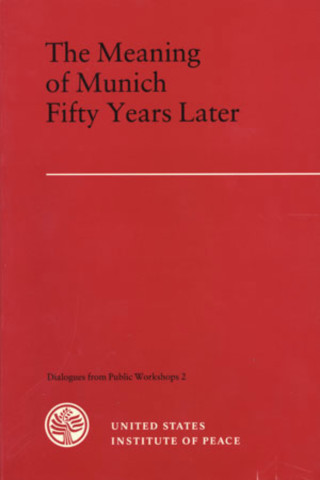The Meaning of Munich Fifty Years Later
Do the Munich accords of 1938 – the failed attempt of Western democracies to appease Adolf Hitler on the eve of World War I – hold a lesson for the future of NATO? According to a panel of scholars and policy analysts who participated in October 1988 in a Public Workshop at the United States Institute of Peace on “The Meaning of Munich Fifty Years Later,” the answer was an unqualified “yes.” But what lesson to draw, in an era of changing Soviet foreign policy and world power balances, was a matter for sharp disagreement and stimulating debate.
This volume contains papers written expressly for the workshop by Professor David Hendrickson (Colorado College), Mr. Christopher Layne (Blecher and Collins and the Cato Institute), Dr. Keith Payne (National Institute for Public Policy), Professor Earl C. Ravenal (Georgetown University School of Foreign Service), Dr. Robin Ranger (Peace Fellow, United States Institute of Peace), and Dr. Jed C. Snyder (National Strategy Information Center).

